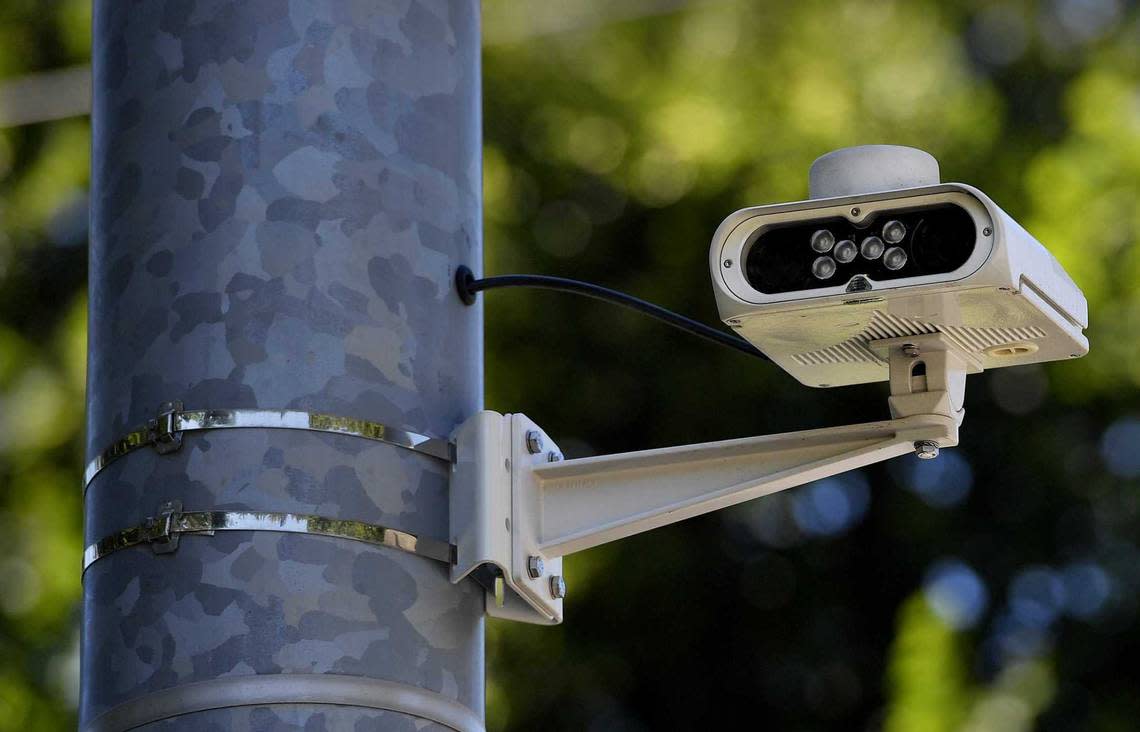Sacramento Sheriff is sharing license plate reader data with anti-abortion states, records show

In 2015, Democratic Elk Grove Assemblyman Jim Cooper voted for Senate Bill 34, which restricted law enforcement from sharing automated license plate reader (ALPR) data with out-of-state authorities. In 2023, now-Sacramento County Sheriff Cooper appears to be doing just that.
The Electronic Frontier Foundation (EFF) a digital rights group, has sent Cooper a letter requesting that the Sacramento County Sheriff’s Office cease sharing ALPR data with out-of-state agencies that could use it to prosecute someone for seeking an abortion.
According to documents that the Sheriff’s Office provided EFF through a public records request, it has shared license plate reader data with law enforcement agencies in states that have passed laws banning abortion, including Alabama, Oklahoma and Texas.
Adam Schwartz, EFF senior staff attorney, called automated license plate readers “a growing threat to everyone’s privacy ... that are out there by the thousands in California.”
Automated license plate readers are often fixed to stationary locations, or police vehicles, and can collect thousands of license plate images that then are stored in a digital cloud. Once in the cloud, it can easily be shared with out-of-state agencies that use the same software.
Schwartz said that a sheriff in Texas, Idaho or any other state with an abortion ban on the books could use that data to track people’s movements around California, knowing where they live, where they work and where they seek reproductive medical care, including abortions.
The Sacramento County Sheriff’s Office isn’t the only one sharing that data; in May, EFF released a report showing that 71 law enforcement agencies in 22 California counties — including Sacramento County — were sharing such data. The practice is in violation of a 2015 law that states “a (California law enforcement) agency shall not sell, share, or transfer ALPR information, except to another (California law enforcement) agency, and only as otherwise permitted by law.”
When The Bee wrote in May about the initial EFF report, the Sacramento County Sheriff’s Office Twitter account responded, even though it was not initially on the list of agencies sharing data.
“Law enforcement agencies commonly use information from License Plate Readers (LPRs) to investigate serious crimes, such as homicide, child kidnappings, human trafficking, and drug trafficking across state borders,” the twitter account said.
It is unclear who sent the tweets from the official account.
It went on to say that organizations like EFF “have lied that law enforcement sharing this information is an attempt to violate people’s legal rights. These false claims are intentional and part of a broader agenda to promote lawlessness and prevent criminals from being held accountable.”
The Sacramento County Sheriff’s Office did not respond to The Bee’s request for comment by deadline. On Wednesday, after this story published, Cooper took to Twitter to accuse the EFF of “protecting child molesters, fentanyl traffickers, rapists and murderers.”
In the tweet, Cooper said that the law allows his office to share license plate data with other law enforcement agencies and that “criminals are not aware of jurisdictional boundaries, much less state lines.”
“The bill and this law has absolutely nothing to do with reproductive rights. My record on women’s and reproductive rights has been strong throughout my time in the State Assembly, and nothing has changed since becoming Sheriff,” Cooper wrote.
Schwartz said that the May tweets “surprised us, because we had not sent a demand letter to them.”
He said that he was not aware of any cases where ALPR data was used to prosecute someone for getting an abortion, but added, “We think we shouldn’t have to wait until the inevitable happens.”
The EFF attorney said that this is a “Tale of Two Cities, best of times and worst of times” situation. While the Sacramento County Sheriff’s Office appears to be defying the law, another nearby law enforcement agency that was named in the initial report announced that it is no longer doing so.
In a letter to the EFF that was shared with The Bee, Woodland Police Chief Derrek Kaff wrote, “We have implemented a revised protocol that does not allow the sharing of ALPR data with any out-of-state agencies. As a department we are committed to upholding the privacy rights of individuals and reinforces our dedication to adhering to the principles of the Fourth Amendment.”

